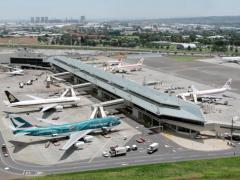CLARIFICATION: FEDHASA has not closed its national operations. Rather, FEDHASA's national OFFICE is closing which is different to what the original headline suggests. The regional structures will continue national operations as usual as outlined in the story. As a federated structure, FEDHASA's regional structures have always been independent entities that lobby on behalf of their members at local, provincial and national level. The national office may be closing, but Cape, East Coast and Inland are not.
Hospitality trade association, FEDHASA, announced tonight (December 10) that it would cease operations at its national office as a result of the impact of COVID-19.
However, as a federated structure, the regional entities will remain fully functional, as they have been throughout the COVID pandemic, and are “ready to continue lobbying on behalf of the hospitality industry”.
“COVID has put immense financial pressure on the entire industry. The result, regrettably, has been that it has also put pressure on the funding of our national office.
“We have had to take a hard look at the responsible thing to do and have decided that it is only fit and proper that Fedhasa – as an association that has represented the interests of the hospitality industry for the past 74 years – takes the same approach to containing costs as many of our members have had to do,” said FEDHASA National Chair, Rosemary Anderson.
As such, the national board has decided to cease the operations of the national office. The board has meanwhile engaged with the ceo, Lee Zama, to determine the best course of action.
FEDHASA’s regional offices – Cape, Inland and East Coast – will align their respective efforts in a series of initiatives that will have direct benefits for members across the country.
“The three regional offices have always been legal entities in their own right and FEDHASA, as a federated organisation, has enjoyed robust, sustainable and engaged regional boards that are at the coalface of issues affecting their members.
“The COVID-19 crisis which has caused devastation in the sector, has necessitated improved collaboration across the regions – a focus that the association will take into 2021 with renewed vigour to build on the exceptional work that has been done during this challenging time,” added Rosemary.
She said, for 2021, FEDHASA’s regional structures would remain the point of contact for all regional members. “Our teams will work harder than ever within this business unusual environment in support of members, lobbying at local, provincial and national level.
“As strong regional structures, our focus in the new year will be to strengthen, enhance and align the goals and activities conducted by these regional structures so that we, as one team, deliver the value our members, and indeed the entire industry, need to recover from this devastating pandemic.”
She said FEDHASA had been at the forefront – through its regional offices, directors and ceo – of developing the Tourism Business Council’s Travel Safe Eat Safe health and safety protocols that were used as the framework to reopen the sector safely.
Rosemary noted that this contribution was a pivotal step to ensuring that members were allowed to trade under the State of National Disaster.













